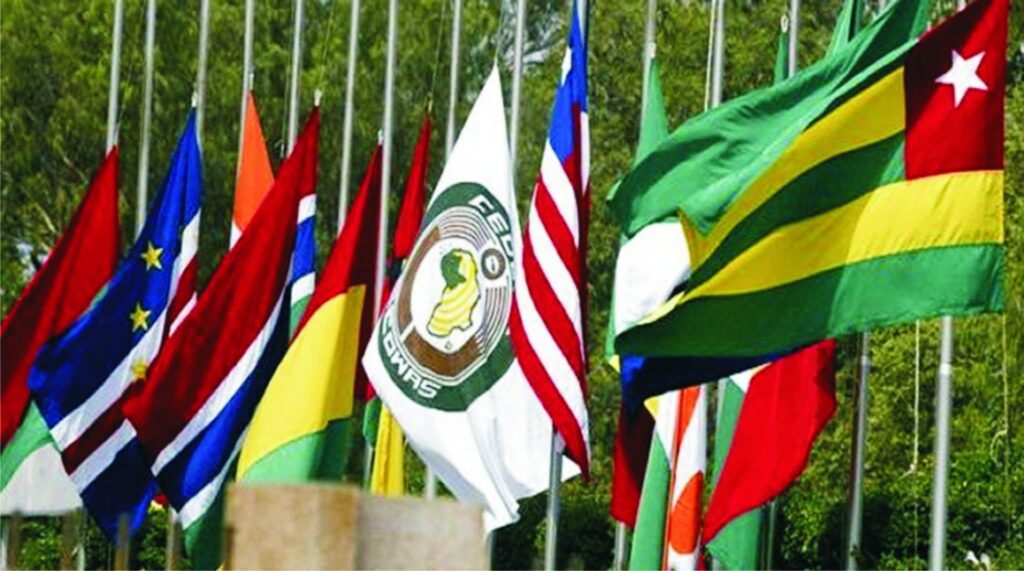The Authority of ECOWAS Heads of State and Government recently established a committee to engage with the military government in the Niger Republic to explore a short transition roadmap and the emplacement of monitoring mechanisms towards returning the country to civil rule.
In a communiqué at the end of the authority’s 64th ordinary session read by Dr Omar Touray, President of the ECOWAS Commission, its leaders promised a gradual easing of sanctions based on outcomes of the engagement, emphasising the need for the immediate and unconditional release of detained President Mohammed Bazoum.
ECOWAS leaders also resolved to hold an extraordinary summit on unconstitutional changes of government aimed at promoting peace, security, and democracy in the region.
“The Authority deeply deplores the continued detention of President Mohammed Bazoum, his family, and associates by the CMSP regime. The Authority further deplores the lack of commitment on the part of the CMSP to restore constitutional order. Consequently, the Authority calls on the CMSP to release President Mohammed Bazoum, his family, and associates immediately and without precondition.
“The Authority decides to set up a committee of Heads of State made up of the President and Head of State of the Republic of Togo, the President and the Head of State of the Republic of Sierra Leone, the President and Head of State of the Republic of Benin, to engage with the CMSP and other stakeholders to agree on a short transition roadmap, establishing transition organs as well as facilitating the setting up of a transition monitoring and evaluation mechanism towards this speedy restoration of constitutional order. Based on the outcomes of the engagement by the committee of Heads of state with the CMSP, the Authority will progressively ease the sanctions imposed on Niger,” the communiqué read.
A few days later, the commission announced that it has officially suspended the Republic of Niger’s membership until constitutional order is restored in the country. In a statement released on December 15 in Abuja, ECOWAS said, “Until the 64th ordinary session held on 10 December 2023, the Conference of Heads of State and Government considered the situation in Niger as a coup attempt and continued to consider Mohamed Bazoum the President of the Republic of Niger, Head of State. Due to this position, Niger was not suspended from ECOWAS’ decision-making bodies and members of Bazoum’s government were authorised to represent Niger in ECOWAS’ statutory meetings. The 10 December summit recognised that Mohamed Bazoum’s government had effectively been overthrown by a military coup. Consequently, beginning from 10 December 2023, Niger is suspended from all decision-making bodies of ECOWAS, until constitutional order is restored in the country.”
The regional bloc had asked Niger’s military government to release the deposed Bazoum in exchange for the lifting of the sanctions imposed on the country. The head of the military government, Omar Abdourahmane Tchiani, rejected the condition.
Recall that during its emergency meeting convened by President Bola Tinubu following the coup, the ECOWAS Authority of Heads of State and Government announced far-reaching measures to not only restore democracy in the Niger Republic but also mitigate the current trend of coup plots in the sub-region.
Immediate sanctions were spelt out against the military regime in response to the coup, including the closure of land and air borders between ECOWAS countries and Niger, establishing a no-fly zone on all commercial flights to and from Niger, and suspending all commercial and financial transactions between ECOWAS Member States and Niger. Also, assets of the Republic of Niger in the ECOWAS Central Bank, Niger state enterprises, and parastatals in commercial banks were frozen, while the country was suspended from all financial assistance and transactions with financial institutions within ECOWAS.
Furthermore, travel bans and asset freezes were imposed on military officials involved in the coup plot, as well as their family members and civilians who agreed to participate in any institution or government established by those military officials.
Although ECOWAS has not been able to secure the release of Bazoum, its use of Ultimata and Coercive Diplomacy in the situation of Niger has led to an ultimatum threat which further intends to portray the impression that its coercing power definitely will act. Still, its actions will be entirely conditional upon compliance with the demands. Its suspension of the country, after the junta failed to release Bazoum means that it will have an edge when negotiating a short transition roadmap which the regime has agreed to.
We must therefore commend the Nigerian government, whose President Tinubu is the chairman of the regional bloc, for its relentless efforts at restoring democracy in Niger and stabilising the political and security climates in the sub-region. Tinubu has constantly expressed his desire to ensure that the situation in Niger is resolved through diplomatic means. Efforts to ensure that democracy is restored to the country and other countries that have recently experienced military takeovers in the region should be supported by the international community because the trend of coups in the region and elsewhere portends unpleasant ramifications not just for the region but for the world at large.
